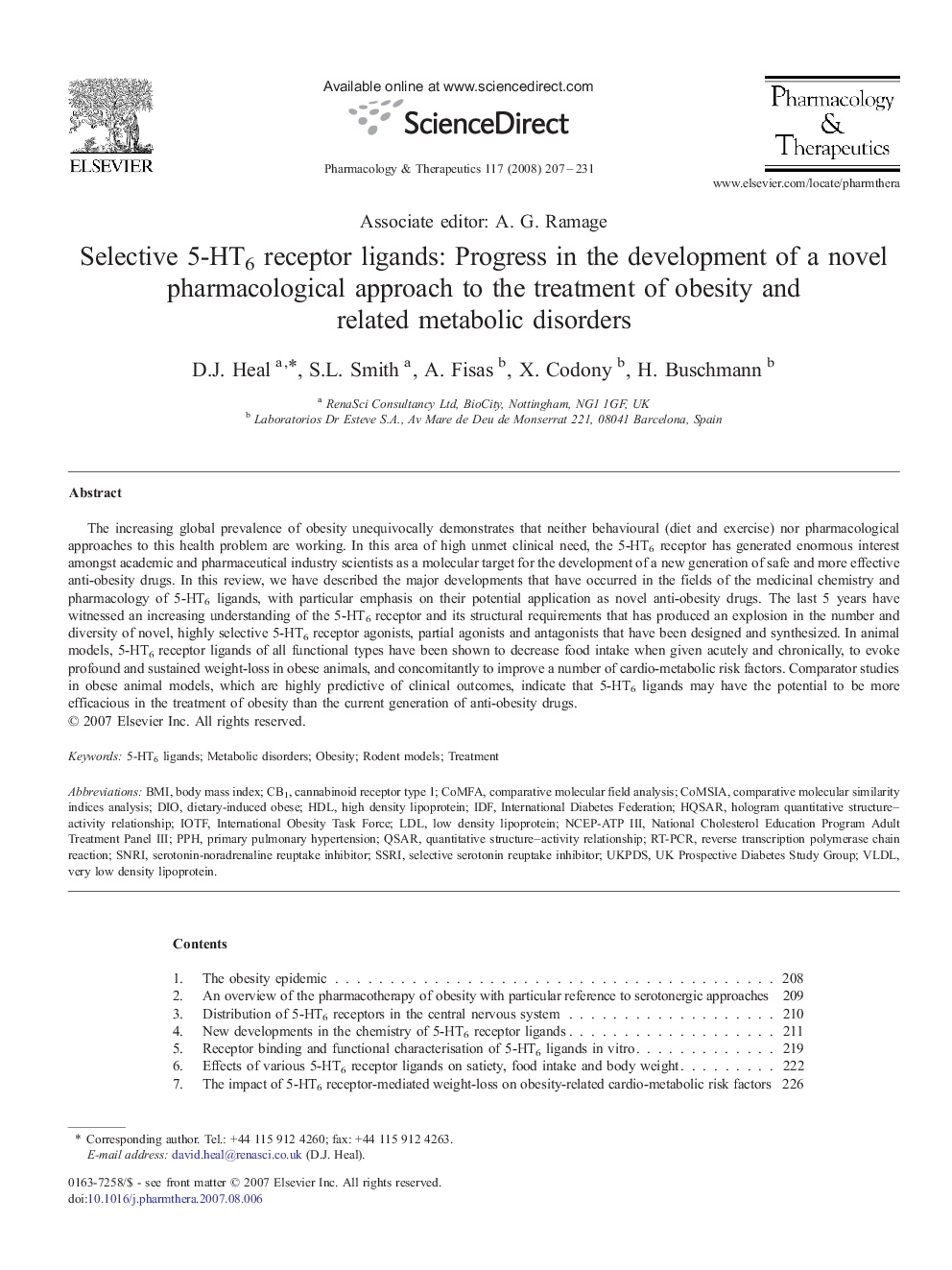| Article ID | Journal | Published Year | Pages | File Type |
|---|---|---|---|---|
| 2563929 | Pharmacology & Therapeutics | 2008 | 25 Pages |
The increasing global prevalence of obesity unequivocally demonstrates that neither behavioural (diet and exercise) nor pharmacological approaches to this health problem are working. In this area of high unmet clinical need, the 5-HT6 receptor has generated enormous interest amongst academic and pharmaceutical industry scientists as a molecular target for the development of a new generation of safe and more effective anti-obesity drugs. In this review, we have described the major developments that have occurred in the fields of the medicinal chemistry and pharmacology of 5-HT6 ligands, with particular emphasis on their potential application as novel anti-obesity drugs. The last 5 years have witnessed an increasing understanding of the 5-HT6 receptor and its structural requirements that has produced an explosion in the number and diversity of novel, highly selective 5-HT6 receptor agonists, partial agonists and antagonists that have been designed and synthesized. In animal models, 5-HT6 receptor ligands of all functional types have been shown to decrease food intake when given acutely and chronically, to evoke profound and sustained weight-loss in obese animals, and concomitantly to improve a number of cardio-metabolic risk factors. Comparator studies in obese animal models, which are highly predictive of clinical outcomes, indicate that 5-HT6 ligands may have the potential to be more efficacious in the treatment of obesity than the current generation of anti-obesity drugs.
